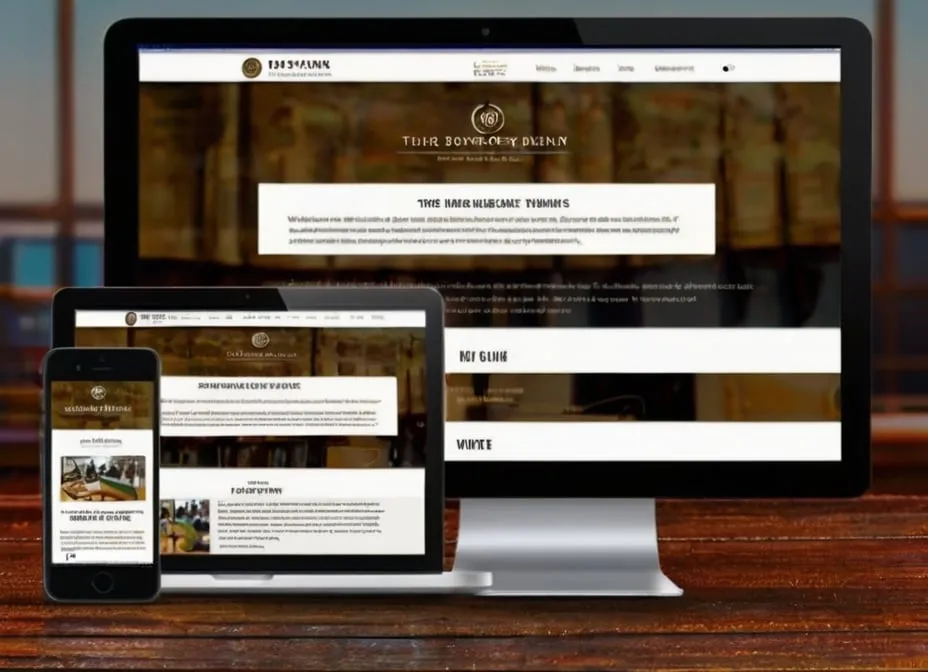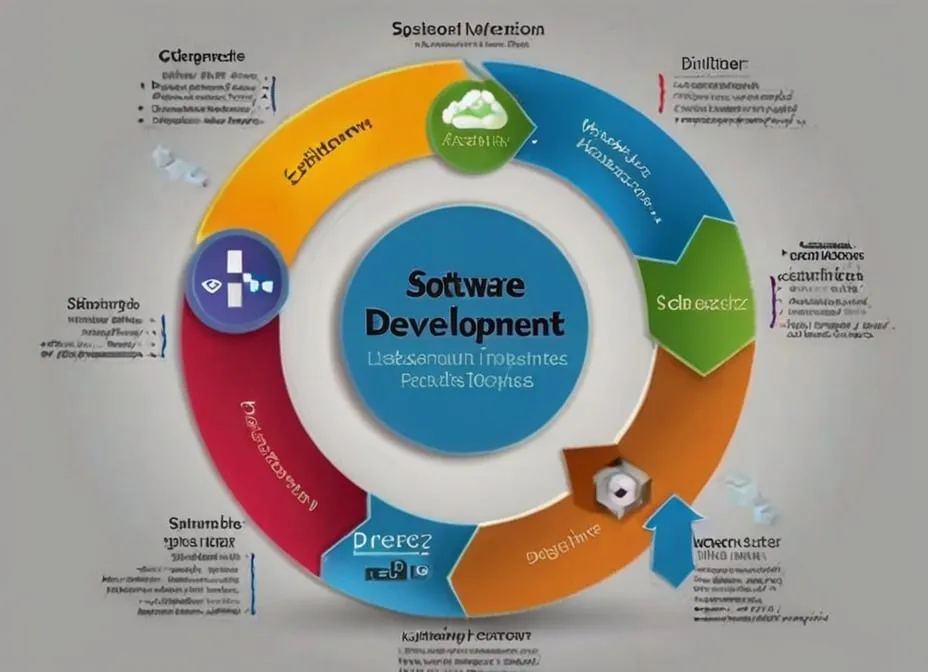Leading in the Age of Tech: The Future of Leadership

The Evolving Role of Leadership in the Tech Era
In the age of rapid technological advancements, the role of leadership is undergoing a profound transformation. Gone are the days of rigid hierarchies and command-and-control structures. The future of leadership lies in embracing a more collaborative, transparent, and innovative approach that empowers teams and fosters a culture of continuous learning and adaptation.
From Hierarchical to Collaborative
Embracing a Flat Organizational Structure
Traditional top-down management models are becoming increasingly obsolete in the face of disruptive technologies and ever-changing market dynamics. Successful leaders of the future will champion flat organizational structures that break down silos and encourage cross-functional collaboration. By minimizing layers of bureaucracy, they can foster a more agile and responsive work environment where ideas flow freely, and decision-making is decentralized.
Fostering Open Communication and Transparency
Effective communication is the lifeblood of any organization, and in the tech era, it's more crucial than ever. Leaders must cultivate an environment of open dialogue, where employees feel empowered to voice their ideas, concerns, and feedback without fear of repercussions. Transparency is key, as it builds trust and ensures everyone is aligned with the organization's vision and goals.
Encouraging Innovation and Risk-Taking
In a rapidly changing landscape, innovation is not a luxury but a necessity for survival and growth. Forward-thinking leaders will create a culture that celebrates experimentation, embraces failure as a learning opportunity, and rewards calculated risk-taking. By fostering an environment where people feel safe to explore new ideas without fear of repercussions, organizations can stay ahead of the curve and capitalize on emerging opportunities.
Leveraging Diversity for Better Decision-Making
Diverse teams bring a wealth of perspectives, experiences, and skillsets to the table, which can lead to better decision-making and problem-solving. Effective leaders in the tech era will actively seek out and embrace diversity in all its forms, recognizing that a homogeneous workforce can breed groupthink and stifle innovation. By creating an inclusive environment where everyone's voice is heard and valued, organizations can tap into a rich pool of talent and gain a competitive edge.
The Rise of Remote and Distributed Teams
The COVID-19 pandemic has accelerated the shift towards remote work, and this trend is likely to continue in the years ahead. As a result, leaders must adapt to the unique challenges and opportunities presented by virtual and distributed teams.
Building Trust in Virtual Environments
When teams are spread across different locations and time zones, building trust becomes paramount. Effective leaders will cultivate an environment of open communication, set clear expectations, and foster a sense of shared purpose. They'll also leverage technology to facilitate regular check-ins, provide feedback, and celebrate team wins, ensuring that everyone feels connected and valued, regardless of their physical location.
Effective Communication Strategies for Remote Teams
Communicating effectively in a virtual setting requires a different skillset than in-person interactions. Leaders must be adept at utilizing various digital tools and platforms to ensure seamless collaboration and information sharing. For instance, they may leverage video conferencing for team meetings, instant messaging for quick updates, and project management software for task delegation and progress tracking.
Promoting Work-Life Balance in a Digital World
With the lines between work and personal life becoming increasingly blurred in a remote setting, leaders must be mindful of their team's well-being. Encouraging regular breaks, setting reasonable expectations, and respecting boundaries can help prevent burnout and foster a healthier work-life balance. A little humor can go a long way, too – after all, a leader who can crack a joke during a virtual meeting can help lighten the mood and strengthen team bonds.
Leveraging Technology for Seamless Collaboration
The tech era has brought with it a plethora of tools and platforms designed to facilitate remote collaboration. Savvy leaders will stay abreast of the latest developments and implement solutions that streamline workflows, enhance productivity, and foster a sense of connectedness within their teams. From cloud-based file sharing to virtual whiteboards and real-time document collaboration, the possibilities are endless.
Leadership Skills for the Digital Age
As the world becomes increasingly digitized, the skills required for effective leadership are evolving. To thrive in the tech era, leaders must cultivate a unique blend of soft skills and technical competencies.
Emotional Intelligence and Empathy
In an age where automation and artificial intelligence are rapidly transforming the workplace, the human touch becomes ever more valuable. Emotionally intelligent leaders who can empathize with their team members, manage conflicts effectively, and create a supportive environment will be better equipped to navigate the complexities of the digital age. A little humor can go a long way, too – a leader who can crack a well-timed joke or share a relatable anecdote can foster stronger connections and boost morale.
Data-Driven Decision-Making
With the abundance of data available in the digital age, leaders must be adept at collecting, analyzing, and interpreting information to make informed decisions. They'll need to cultivate a data-driven mindset and leverage advanced analytics tools to uncover insights, identify trends, and make strategic choices that drive organizational success.
Continuous Learning and Adaptability
The pace of technological change is relentless, and what's cutting-edge today may become obsolete tomorrow. Leaders in the tech era must embrace a growth mindset and be committed to continuous learning and upskilling. They'll need to be adaptable, open to new ideas, and willing to pivot strategies when necessary, ensuring their organizations remain agile and responsive to market shifts.
Digital Literacy and Tech-Savviness
While leaders don't necessarily need to be coding experts, they must possess a solid understanding of digital technologies and their potential applications. This could involve familiarizing themselves with emerging trends like artificial intelligence, blockchain, or the Internet of Things (IoT), and exploring how these technologies can be leveraged to drive innovation and create competitive advantages.
By mastering this unique blend of skills, leaders can navigate the complexities of the tech era with confidence and position their organizations for long-term success.
Cultivating an Innovative and Agile Culture
In the rapidly evolving tech landscape, innovation and agility are the keys to staying ahead of the curve. Successful leaders will cultivate a culture that encourages experimentation, embraces change, and nurtures a growth mindset within their organizations.
Encouraging Experimentation and Failure
Creating Psychological Safety for Risk-Taking
Innovation often involves taking calculated risks and stepping outside one's comfort zone. Effective leaders will create an environment where employees feel psychologically safe to experiment, voice unconventional ideas, and learn from their failures without fear of repercussions. By fostering a culture of trust and open communication, organizations can tap into their collective creativity and unlock new avenues for growth.
Celebrating Small Wins and Learning from Failures
Failure is an inevitable part of the innovation process, but it's how organizations respond to it that makes all the difference. Forward-thinking leaders will celebrate small wins and milestones along the way, recognizing the effort and progress made by their teams. At the same time, they'll encourage a mindset of continuous improvement, leveraging failures as learning opportunities to refine ideas and strategies.
Rapid Prototyping and Iterative Development
In the fast-paced tech world, the ability to quickly validate ideas and pivot strategies is essential. Leaders should promote a culture of rapid prototyping and iterative development, where teams can quickly test concepts, gather feedback, and make necessary adjustments before investing significant resources. This agile approach allows organizations to stay nimble and adapt swiftly to changing market conditions.
Fostering Cross-Functional Collaboration
True innovation often happens at the intersection of diverse perspectives and disciplines. By breaking down siloes and fostering cross-functional collaboration, leaders can unlock new synergies and drive creative problem-solving. This could involve assembling multidisciplinary teams, encouraging knowledge-sharing across departments, or implementing collaborative workspaces that facilitate serendipitous interactions.
Embracing Change and Agility
The only constant in the tech era is change itself. Leaders who can anticipate and adapt to disruptive forces will be better equipped to navigate the ever-shifting landscape.
Adapting to Disruptive Technologies
Emerging technologies like artificial intelligence, blockchain, and the Internet of Things (IoT) have the potential to disrupt entire industries. Leaders must stay ahead of the curve by actively monitoring technological advancements and exploring their implications for their organizations. By embracing an agile mindset, they can pivot strategies, reallocate resources, and capitalize on new opportunities before their competitors.
Continuous Improvement and Kaizen
Stagnation is the enemy of progress in the tech era. Successful leaders will instill a culture of continuous improvement, or "kaizen," within their organizations. This involves constantly identifying areas for optimization, streamlining processes, and implementing incremental improvements that compound over time, keeping their organizations lean, efficient, and competitive.
Empowering Teams for Quick Decision-Making
In a rapidly changing environment, the ability to make swift decisions can mean the difference between success and failure. Agile leaders will empower their teams with the autonomy and resources they need to make informed choices without getting bogged down by bureaucracy. By cultivating a culture of trust and accountability, they can foster an environment where teams can respond swiftly to emerging challenges and opportunities.
Leveraging Lean and Agile Methodologies
Lean and agile methodologies, such as Scrum and Kanban, have become increasingly popular in the tech industry for their emphasis on iterative development, cross-functional collaboration, and rapid adaptation to change. Leaders who embrace these methodologies can better align their teams, optimize workflows, and deliver value to customers more efficiently, ensuring their organizations remain competitive in the fast-paced tech landscape.
Nurturing a Growth Mindset
A growth mindset – the belief that abilities and intelligence can be developed through dedication and hard work – is essential for fostering a culture of continuous learning and improvement.
Promoting Lifelong Learning and Skill Development
In the ever-evolving tech world, the skills and knowledge required for success are constantly shifting. Effective leaders will prioritize lifelong learning and skill development within their organizations, providing ample opportunities for training, upskilling, and professional growth. This could involve implementing mentorship programs, offering tuition reimbursement, or partnering with educational institutions to deliver customized training programs.
Providing Constructive Feedback and Coaching
Feedback is a crucial component of personal and professional development. Leaders who can deliver constructive feedback in a supportive and empathetic manner can help their team members identify areas for improvement and develop actionable plans for growth. Coaching can also play a pivotal role, providing guidance, encouragement, and accountability to help individuals reach their full potential.
Encouraging Curiosity and Questioning Assumptions
In a rapidly changing world, the ability to question assumptions and challenge the status quo is invaluable. Leaders should foster a culture of intellectual curiosity, where employees feel empowered to ask questions, explore new ideas, and think critically about existing processes and practices. By encouraging divergent thinking and open-mindedness, organizations can stay ahead of the curve and uncover innovative solutions to complex problems.
Celebrating Diversity of Thought and Perspectives
Diversity isn't just about demographics – it's also about diversity of thought, experiences, and perspectives. Leaders who can create an environment where diverse viewpoints are valued and respected can tap into a rich wellspring of ideas and insights. By celebrating the unique contributions of each team member, they can foster an inclusive culture that drives innovation and better decision-making.
By cultivating an innovative and agile culture, organizations can stay ahead of the curve and thrive in the ever-changing tech landscape.
Leading with Purpose and Ethical Responsibility
As technology continues to shape our world, leaders must navigate complex ethical considerations and prioritize responsible innovation. In the tech era, success is not just measured by financial metrics but also by an organization's ability to align its values with business objectives and contribute positively to society.
Aligning Values with Business Objectives
Defining a Clear Vision and Mission
Effective leaders in the tech era will articulate a clear vision and mission that goes beyond profit maximization. They'll define a higher purpose that resonates with employees, customers, and stakeholders alike, inspiring everyone to work towards a common goal that creates value for society.
Communicating Purpose and Inspiring Employees
Having a well-defined purpose is one thing, but communicating it effectively is another. Leaders must be skilled storytellers, able to convey their organization's mission in a way that resonates emotionally and inspires employees to embrace and embody those values. This could involve sharing real-life stories that illustrate the positive impact of their work, or highlighting how individual contributions align with the greater purpose.
Demonstrating Ethical Leadership and Accountability
In an age of heightened scrutiny and transparency, leaders must lead by example and demonstrate the highest standards of ethical conduct. They'll need to take accountability for their actions, admit mistakes, and show a willingness to course-correct when necessary. By embodying ethical leadership, they can foster a culture of trust and integrity within their organizations.
Balancing Profit with Social and Environmental Impact
While financial success is essential for any business, it should not come at the expense of social and environmental responsibility. Effective leaders will find ways to balance profitability with positive societal impact, whether through sustainable practices, corporate social responsibility initiatives, or the development of products and services that address global challenges.
Building a Culture of Trust and Integrity
Leading by Example and Walking the Talk
Trust is the foundation upon which strong organizational cultures are built, and it starts at the top. Leaders who "walk the talk" and embody the values they espouse can inspire their teams to follow suit, creating a ripple effect of integrity throughout the organization.
Promoting Ethical Decision-Making Frameworks
In the fast-paced and complex world of technology, ethical dilemmas can arise unexpectedly. Effective leaders will implement ethical decision-making frameworks to guide their teams through these challenges, ensuring that decisions are made transparently and with consideration for their broader implications.
Fostering Psychological Safety for Speaking Up
A culture of trust and integrity requires an environment where employees feel safe to voice concerns or dissent without fear of retaliation. Leaders should actively promote psychological safety, encouraging open dialogue and creating channels for employees to raise ethical issues or report misconduct confidentially.
Addressing Bias and Promoting Inclusivity
Unconscious biases can seep into organizational processes, decision-making, and even the development of technology itself. Leaders committed to ethical leadership will take proactive steps to identify and mitigate these biases, promoting inclusivity and ensuring that their products, services, and practices are fair and equitable for all.
Responsible Innovation and Technology Ethics
Understanding the Societal Impact of Technology
Technology has the power to transform lives, but it can also have unintended consequences if not developed and deployed responsibly. Leaders in the tech era must cultivate a deep understanding of the societal implications of their work, considering how emerging technologies might impact privacy, security, employment, and social dynamics.
Protecting Privacy and Data Security
In the digital age, data is a valuable commodity, and the responsible handling of personal information is paramount. Leaders must prioritize robust data protection measures, implement strict privacy policies, and ensure that their organizations adhere to best practices for cybersecurity and data governance.
Addressing Ethical Concerns in AI and Automation
Artificial intelligence and automation are revolutionizing industries, but they also raise complex ethical questions. Leaders should stay abreast of the latest developments in these fields and engage in ongoing dialogue with experts, policymakers, and the public to address concerns around algorithmic bias, job displacement, and the responsible development and deployment of these technologies.
Promoting Responsible and Sustainable Tech Practices
The tech industry has a significant environmental footprint, from energy-intensive data centers to the production and disposal of electronic waste. Responsible leaders will prioritize sustainable practices, such as investing in renewable energy sources, implementing circular economy principles, and minimizing their organizations' carbon footprints.
By aligning their values with business objectives, building a culture of trust and integrity, and prioritizing responsible innovation, leaders can navigate the complex ethical landscape of the tech era and ensure their organizations have a positive impact on society.
Developing Future-Ready Leaders
As the tech landscape continues to evolve at a breakneck pace, developing a pipeline of future-ready leaders is crucial for organizational success and longevity. Effective leadership development strategies will focus on identifying and nurturing talent, cultivating a learning mindset, and equipping leaders with the skills to navigate an increasingly complex and uncertain future.
Identifying and Nurturing Leadership Potential
Talent Management and Succession Planning
Developing future leaders starts with a robust talent management strategy that identifies high-potential individuals early on. Leaders should implement processes for assessing and tracking employee performance, potential, and aspirations, creating structured career development plans tailored to each individual's strengths and goals.
Providing Mentorship and Coaching Opportunities
Mentorship and coaching can be powerful tools for nurturing leadership potential. By pairing promising employees with seasoned leaders, organizations can facilitate knowledge transfer, provide guidance and support, and help cultivate the skills and mindsets required for leadership roles. Effective mentors can also serve as role models, inspiring their mentees to emulate their values and practices.
Encouraging Cross-Functional and Cross-Departmental Exposure
To develop well-rounded leaders with a comprehensive understanding of organizational operations, it's essential to provide opportunities for cross-functional and cross-departmental exposure. This could involve job rotations, temporary assignments, or shadowing programs that allow employees to gain insights into different areas of the business, fostering a broader perspective and collaborative mindset.
Offering Leadership Development Programs
Formal leadership development programs can be invaluable for equipping employees with the knowledge and skills required to lead effectively in the tech era. These programs may include workshops, seminars, case studies, and simulations focused on topics such as strategic thinking, emotional intelligence, change management, and digital literacy, among others.
Building a Learning Organization
Creating a Culture of Continuous Improvement
A learning organization is one that actively promotes and facilitates the acquisition, sharing, and application of knowledge. Leaders should cultivate a culture of continuous improvement, where employees are encouraged to constantly seek out new information, challenge assumptions, and explore opportunities for growth and development.
Fostering Knowledge Sharing and Collaboration
Effective knowledge sharing is essential for ensuring that valuable insights and best practices are disseminated throughout the organization. Leaders can facilitate this by implementing knowledge management systems, encouraging cross-functional collaboration, and promoting a spirit of openness and transparency. Regular forums, such as brown bag sessions or internal conferences, can also provide platforms for employees to share their expertise and learn from one another.
Leveraging Digital Learning and Upskilling Initiatives
In the tech era, traditional classroom-based training is rapidly being supplemented by digital learning platforms and upskilling initiatives. Leaders should explore and leverage these modern approaches, which can offer more flexible, personalized, and cost-effective ways for employees to acquire new skills and stay up-to-date with the latest developments in their fields.
Encouraging Experimentation and Innovation
A true learning organization is one that not only acquires knowledge but also applies it to drive innovation and continuous improvement. Leaders should create an environment that encourages experimentation, risk-taking, and the exploration of new ideas, fostering a culture of curiosity and a willingness to challenge the status quo.
Embracing Lifelong Learning and Self-Development
Developing Self-Awareness and Emotional Intelligence
Effective leaders in the tech era must possess a high degree of self-awareness and emotional intelligence. They should prioritize personal growth and self-reflection, seeking out feedback and opportunities to better understand their strengths, weaknesses, and blind spots. Developing emotional intelligence can also help leaders navigate the complexities of leading diverse teams and fostering inclusive cultures.
Cultivating Strategic and Systems Thinking
In an increasingly interconnected and complex world, leaders must be able to think strategically and holistically. They should cultivate their ability to analyze issues from multiple perspectives, understand the interconnections between different elements of the organization and its operating environment, and make decisions that consider long-term implications and unintended consequences.
Enhancing Communication and Influence Skills
Effective communication and influence are essential leadership skills, particularly in the tech era, where teams may be dispersed across different locations and time zones. Leaders should continuously work on honing their ability to convey complex ideas clearly, inspire and motivate others, and build consensus around shared goals and objectives.
Staying Updated with Emerging Technologies and Trends
The tech landscape is constantly evolving, with new technologies and trends emerging at a rapid pace. To remain relevant and effective, leaders must make a conscious effort to stay up-to-date with these developments, continuously learning and adapting their knowledge and skillsets to align with the changing times.
By investing in the development of future-ready leaders, organizations can cultivate a pipeline of talent equipped to navigate the complexities and seize the opportunities of the tech era, ensuring their long-term success and sustainability.
FAQ Section
Q1: How can leaders foster a culture of innovation in their organizations?
Fostering a culture of innovation requires creating an environment where employees feel safe to take risks, experiment, and learn from failures. Leaders can achieve this by promoting psychological safety, celebrating small wins, encouraging rapid prototyping and iterative development, and facilitating cross-functional collaboration. Additionally, they should nurture a growth mindset and prioritize continuous learning and skill development.
Q2: What are the key ethical considerations for leaders in the tech era?
As technology continues to shape our world, leaders must navigate complex ethical considerations, such as aligning organizational values with business objectives, building a culture of trust and integrity, understanding the societal impact of technology, protecting privacy and data security, addressing ethical concerns in AI and automation, and promoting responsible and sustainable tech practices.
Q3: How can leaders develop a pipeline of future-ready talent?
Developing future-ready leaders involves implementing robust talent management and succession planning strategies, providing mentorship and coaching opportunities, encouraging cross-functional exposure, and offering formal leadership development programs. Additionally, leaders should cultivate a learning organization by fostering knowledge sharing, leveraging digital learning initiatives, and encouraging experimentation and innovation.
Q4: What are the essential skills for effective leadership in the digital age?
In the tech era, leaders must cultivate a unique blend of soft skills and technical competencies, including emotional intelligence, data-driven decision-making, continuous learning and adaptability, and digital literacy. They should also possess strong communication and influence skills, strategic and systems thinking abilities, and the willingness to stay updated with emerging technologies and trends.
Q5: How can leaders balance profitability with social and environmental responsibility?
Balancing profitability with social and environmental responsibility requires leaders to define a clear vision and mission that resonates with stakeholders, communicate their organization's purpose effectively, and demonstrate ethical leadership and accountability. They should explore sustainable practices, corporate social responsibility initiatives, and the development of products and services that address global challenges.










